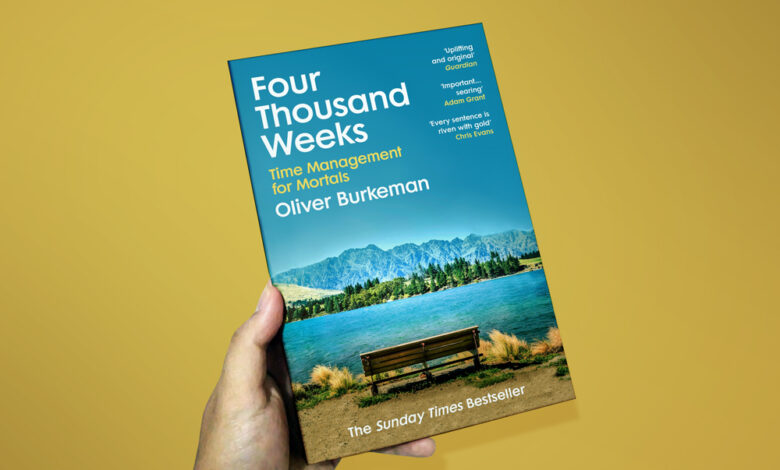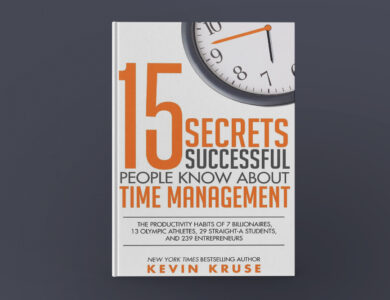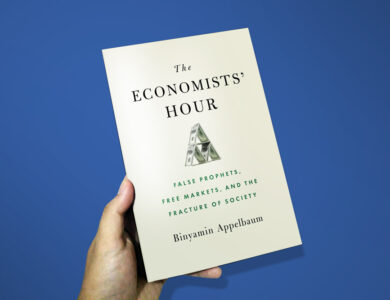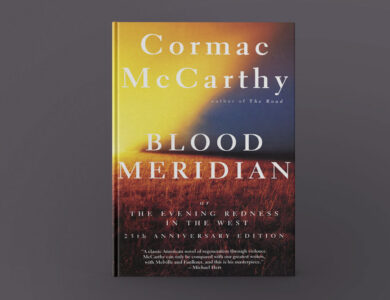Four Thousand Weeks by Oliver Burkeman
Four Thousand Weeks: Navigating the Cosmic Hourglass

The Finite Dance of Mortals
In this grand cosmic theater, our existence unfolds—a fleeting performance on the stage of time. Oliver Burkeman’s “Four Thousand Weeks: Time Management for Mortals” beckons us from the wings. As the curtain rises, we confront the stark truth: our average human lifespan is absurdly, insultingly brief. We are mere fireflies in the vast night, flickering for a heartbeat before fading into oblivion. The cosmic clock ticks, relentless and impartial. Our allotted time—like sand slipping through an hourglass—measures not in centuries or decades but in heartbeats, breaths, and sunrises. Assuming we live to be eighty—a generous assumption—we have just over four thousand weeks. Four thousand heartbeats, each a metronome marking our passage. Four thousand breaths, inhaling stardust and exhaling stories. Four thousand sunrises, each a promise of renewal. And within these weeks, we find our chances to make meaning—to dance, to love, to create, to ponder the enigma of existence.
Burkeman’s book isn’t a manual for efficiency or a productivity hack. It’s an invitation—an embroidered envelope delivered by cosmic post. Open it. Inside, you’ll find no rigid schedules or time blocks. Instead, there’s a quiet room—a space to contemplate, recalibrate, and choose. Imagine a palette before you—a thousand colors waiting to be mixed. Each hue represents an emotion, a decision, a memory. Passion Red—the fervor of creation; Solitude Blue—the quietude of introspection; Golden Glow—relationships casting a warm light on our days; Emerald Green—the growth sprouting from curiosity; Ink Black—the unknown beckoning beyond the horizon. Burkeman’s prose isn’t a metronome; it’s a symphony. Each sentence resonates like a note played on a Stradivarius violin. He weaves humor, paradox, and vulnerability—the crescendos and diminuendos of a soul baring itself. His words breathe, inviting us to pause and reflect. This isn’t a race; it’s a composition—an ode to impermanence. Imagine sitting in the concert hall, eyes closed, feeling the vibrations of truth reverberate through your bones. And so, dear reader, as you turn these pages, let the themes seep into your marrow. The curtain rises, falls, and rises again. Your role in this cosmic drama is both scripted and improvised. Four thousand weeks—a fleeting overture—await your interpretation. What melody shall you play? What chords shall you strike? The canvas awaits—a thousand colors, four thousand weeks. The spotlight is yours.
Burkeman doesn’t offer a conventional time management manual. Instead, he beckons us to explore the contours of our temporal canvas. How do we wield our brushes? What hues do we choose? The palette is limited, but the possibilities are infinite. Let’s delve into this thought-provoking guide—a compass for navigating the labyrinth of existence.
Author Background:
Oliver Burkeman, a seasoned journalist and seeker of life’s deeper truths, doesn’t wield a stopwatch; he wields a philosopher’s lens. His bylines grace The Guardian, The New York Times, and The Wall Street Journal. But beyond headlines and deadlines, Burkeman dives into the timeless questions: How do we inhabit our days? What does it mean to be mortal? His curiosity led him to explore time management not as a productivity hack but as a philosophical inquiry. Burkeman’s blend of ancient wisdom and contemporary insights infuses “Four Thousand Weeks” with a rare elixir—a tonic for our chronically hurried souls.
In-Depth Summary
1. The Cosmic Hourglass
Imagine a cosmic hourglass—an ancient artifact that measures existence. Its glass neck narrows, and the sands of time sift through. We stand on the precipice, our allotted moments like grains of stardust. Oliver Burkeman’s “Four Thousand Weeks: Time Management for Mortals” beckons us from the wings. As the curtain rises, we confront the stark truth: our human lifespan is absurdly, insultingly brief. We are fireflies in the vast night, flickering for a heartbeat before fading into oblivion. The cosmic clock ticks, relentless and impartial. Our days—like sand slipping through an hourglass—measure not in decades but in heartbeats, breaths, and sunrises.
2. The Invitation to Contemplate
Burkeman’s book isn’t a productivity manifesto or a hack for cramming more tasks into our days. It’s an invitation—an embroidered envelope delivered by cosmic post. Inside, there’s no rigid schedule, no stopwatch. Instead, there’s a quiet room—a space to contemplate, recalibrate, and choose. Imagine a palette before you—a thousand colors waiting to be mixed. Each hue represents an emotion, a decision, a memory. Passion Red—the fervor of creation; Solitude Blue—the quietude of introspection; Golden Glow—the warmth of relationships; Emerald Green—the growth sprouting from curiosity; Ink Black—the unknown beckoning beyond the horizon. Burkeman’s prose isn’t a metronome; it’s a symphony. Each sentence resonates like a note played on a Stradivarius violin. His words breathe, inviting us to pause and reflect. This isn’t a race; it’s a composition—an ode to impermanence. And so, dear reader, as you turn these pages, let the themes seep into your marrow. The curtain rises, falls, and rises again. Your role in this cosmic drama is both scripted and improvised. Four thousand weeks—a fleeting overture—await your interpretation. What melody shall you play? What chords shall you strike? The canvas awaits—a thousand colors, four thousand weeks. The spotlight is yours.
Themes and Insights:
1. Embracing Finitude
Our four thousand weeks—a cosmic heartbeat—are both constraint and liberation. Burkeman invites us to dance within this boundary, not as prisoners but as artists. Within these temporal confines, we create, connect, and savor. The ticking clock becomes our partner in the waltz of existence.
Imagine the canvas: finite yet pregnant with possibility. Each stroke matters. We choose colors—bold or subtle—to express our essence. Finitude isn’t a cage; it’s the frame that elevates our art.
2. Quality Over Quantity
Burkeman’s brush strokes emphasize depth, not breadth. It’s not about cramming more tasks into our days like hurried commuters onto a crowded train. Instead, we infuse each moment with significance. The mundane becomes sacred; the ordinary, extraordinary.
Imagine sipping a cup of tea—the warmth seeping into your palms, the fragrant steam curling upward. That sip contains galaxies. Four thousand weeks, too, can be savored like aged wine.
3. Ancient Echoes
Stoicism, mindfulness, and existentialism echo through these pages. Burkeman channels the wisdom of Seneca, Epictetus, and Camus. Their voices blend with his own, urging us to face our mortality with grace.
Seneca whispers: “It is not that we have a short time to live, but that we waste a lot of it.” Epictetus reminds us: “It’s not what happens to you, but how you react to it that matters.” And Camus, in the theater of absurdity, invites us to dance even when the music seems discordant.
4. The Ultimate Time Management Problem
It’s not calendars or time blocks; it’s how we use our four thousand weeks. Burkeman’s palette includes shades of acceptance, presence, and purpose. The ultimate question isn’t “How do I fit more in?” but “What truly matters?”
Imagine a garden. Some plants thrive; others wither. We tend to the soil, knowing that seasons change. Burkeman’s wisdom nourishes our roots, reminding us that time management isn’t about efficiency; it’s about alignment.
5. Writing Style: A Symphony of Insight
Burkeman’s prose isn’t a metronome; it’s a symphony. Each sentence resonates like a note played on a Stradivarius violin. He weaves humor, paradox, and vulnerability—the crescendos and diminuendos of a soul baring itself.
His words breathe, inviting us to pause and reflect. This isn’t a race; it’s a composition—an ode to impermanence. Imagine sitting in the concert hall, eyes closed, feeling the vibrations of truth reverberate through your bones.
Recommendation:
1. Embrace the Quiet Room
Burkeman’s book isn’t a frenetic race toward productivity or a checklist of achievements. It’s a sanctuary—a quiet room where you can pause, exhale, and listen to the whispers of your own existence. Step inside, close the door, and let the noise of the world fade. Here, time stretches like a lazy cat in the sun, inviting you to explore its contours.
2. Contemplate, Not Calculate
Put away the stopwatch. Time isn’t a commodity to be traded or hoarded. It’s a river, meandering through valleys of experience. Read Four Thousand Weeks slowly, like a sip of aged wine. Let each sentence linger on your tongue, releasing its bouquet of insights. Contemplation is the currency here—an investment in understanding rather than efficiency.
3. Recalibrate Your Compass
The compass needle of your life points not to North but to Meaning. Pause and recalibrate. What stirs your soul? What makes your heart beat in sync with the universe? Perhaps it’s the scent of rain-soaked earth, the laughter of a child, or the way music dances through your bones. Let Burkeman’s wisdom seep into your soul, aligning you with your true north.
4. Choose Deliberately
Four thousand weeks—a cosmic blink—await you. In this ephemeral span, you’ll make countless choices. Some will be mundane: coffee or tea, left or right, paper or plastic. But others will shape the contours of your existence: love or fear, creation or consumption, solitude or connection. Choose deliberately. Each decision is a brushstroke on your canvas.
5. The Palette of Purpose
Within these pages, you’ll discover a palette—a kaleidoscope of colors waiting to infuse your weeks with meaning:
Passion Red: Dip your brush into the crimson hues of purpose. What ignites your spirit? Pursue it with fervor. Whether it’s writing, gardening, or unraveling the mysteries of the cosmos, let passion guide your strokes.
Solitude Blue: Sometimes, the canvas demands quietude. Retreat to the blue alcove of introspection. Reflect on your journey—the footprints you’ve left, the scars you’ve earned. Here, you’ll find clarity and the courage to continue.
Golden Glow: Relationships cast a golden glow on our days. Cherish them—the laughter shared with friends, the warmth of family, the touch of a lover. These connections are the gossamer threads that weave our existence.
Emerald Green: Growth sprouts from the fertile soil of curiosity. Learn, explore, stretch. Be the sapling reaching for sunlight. Whether it’s a new language, a musical instrument, or the art of forgiveness, let green tendrils unfurl.
Ink Black: The unknown beckons—an uncharted sea beyond the horizon. Sail into the abyss of questions. Seek answers, but also revel in the mystery. Darkness births stars; uncertainty births wonder.
6. The Unfinished Symphony
As the final pages approach, remember: Life isn’t a countdown; it’s a crescendo. Your symphony remains unfinished. The canvas awaits—a thousand colors, four thousand weeks. What masterpiece shall you paint? Will it be a sonnet of laughter, a ballad of tears, or an abstract swirl of both?
And so, dear reader, lift your brush. Let it dance across the canvas of existence. The curtain falls, but the echoes remain. Your legacy—the hues you dared to blend—will ripple through infinity.
Four Thousand Weeks isn’t just a book; it’s an invitation. Sip from its pages, savor its wisdom, and let your soul resonate with the cosmic heartbeat
Conclusion:
As the curtain descends on our fleeting performance, we find ourselves suspended at the crossroads of seconds and eternities. The theater of life, once ablaze with vivid scenes, now dims to a soft glow. The audience—the collective consciousness—holds its breath, caught between nostalgia and anticipation.
In this quietude, we confront the ultimate question: How shall we spend our next heartbeat? The metronome of existence ticks relentlessly, urging us to choose. Shall we chase after fleeting desires, like fireflies in a summer dusk? Or shall we seek the profound, the enduring—the colors that stain the canvas of our souls?
The canvas—a vast expanse—awaits our touch. It bears the weight of countless dreams, whispered secrets, and forgotten promises. Each stroke we make echoes across the ages, reverberating through the corridors of time. Four thousand weeks—a mere whisper in the cosmic symphony—beckon us to create, to love, to transcend.
The Palette of Possibilities
Consider the hues at our disposal:
Passion Red: The fervor of creation—the pen scratching parchment, the sculptor’s chisel against marble, the scientist’s equations etching patterns in the fabric of reality. We are alchemists, turning moments into meaning.
Solitude Blue: The quietude of introspection—the midnight musings, the solitary walks along moon-kissed shores. Here, we sift through memories, seeking pearls of wisdom hidden in the sands of time.
Golden Glow: The warmth of connection—the laughter shared with kindred souls, the touch of a lover’s hand, the embrace of family. Relationships weave the tapestry of our existence, stitching together joy and sorrow.
Emerald Green: The vitality of growth—the sapling reaching for sunlight, the scholar’s thirst for knowledge, the dancer’s pirouette. Life unfurls in chlorophyll-rich veins, urging us to stretch toward the sun.
Ink Black: The mystery of the uncharted—the undiscovered lands beyond the horizon, the questions that haunt our nights. We sail into the abyss, fueled by curiosity and the audacity to explore.
The Unfinished Symphony
And so, dear reader, as the final notes linger, we stand on the precipice. Our canvas bears smudges, bold strokes, and delicate whispers. We are unfinished symphonies, yearning for crescendos yet unwritten.
Four thousand weeks—a cosmic heartbeat—invite us to dance, to sing, to leave footprints on stardust. The curtain falls, but the echoes remain. Our legacy—the colors we dared to blend—will ripple through infinity.
Remember this: Life is not a countdown; it’s a crescendo. The canvas awaits—a thousand colors, four thousand weeks. What masterpiece shall you paint?
And with that, the book gently closes, leaving room for contemplation.



